Beating to the rhythm of the drum
Since ancient times drumming has been used therapeutically.
Henriette Lamprecht - Rhythm is a universal language and drums the heartbeat of every musical style. No matter what age, nationality, gender or race you are, beating a drum breaks down barriers, making people part of a community sharing a moment of uninhibited joy.
Since ancient times drumming has been used therapeutically – form shamans of Mongolia to the Minianka healers of West Africa, therapeutic rhythm techniques have been used for thousands of years to create and maintain physical, mental, and spiritual health.
Recent research reviews indicate that drumming accelerates physical healing, boosts the immune system and produces feelings of well-being, a release of emotional trauma, and reintegration of self. Simply put, beating to the rhythm of life makes you happy!
In Windhoek the Drum Café’s drum circles is a permanent fixture on the calendar, inviting young and old to experience the joyful vibes of the West-African djembe. Starting out as Ongoma it was founded in 2002 by Namibian tour guide Volker Röder and fellow Namibian drummers. What started off with occasional informal drumming circles or performances in beach bars in the coastal town of Swakopmund quickly developed into a sought-after entertainment product for the corporate market. When Volker tragically lost his fight against cancer in 2012, Ongoma had long relocated to Windhoek as a fully-fledged entertainment company, offering interactive drumming for teambuilding and traditional African music performances as well as facilitating big scale live music events. Ongoma had also published its debut music album, The Natives are Restless.
Since Volker’s passing, the company was registered as The Ongoma Trust and is administered by his wife, Irmi Röde. In December 2015, Ongoma joined the international Drum Café family and is now trading as Drum Café Namibia.
The Drum Café was founded in 1995 from his home by South African djembe player Warren Lieberman. A small group of friends would be coming to Warren’s home every Tuesday to exchange ideas and share in the unique experience of interactive drumming. Soon the word spread. More and more people joined the interactive drumming circle giving birth to the concept of a Drum Café.
Warren went on to study djembe drumming at the feet of master drummer Adama Drame, soon becoming an internationally qualified drum facilitator. Drum Café Johannesburg, a little shop with a small restaurant and stage, saw the light. Here drums were sold, repaired and traded, music shared and made way for other Drum Café’s opening across South Africa.
Apart from Namibia it now also has branches in the USA, Canada, Europe, India, Japan and China.
Of its inception in South Africa Warren explains it took Nelson Mandela’s philosophy as the core of its approach and during South Africa’s time of transition, brought the message of cohesion and unity.
“The Drum Café facilitated communication and cooperation between black and white, male and female, old and young. It learnt how to bridge the gap between the old and the new, and to foster understanding and friendship between employees from vastly different cultural backgrounds.”
Like exercise, drumming promotes the production of endorphins which have the immediate effect of making people feel good. At the most basic level, drumming in a group is about fun, learning a new skill and connecting with others around you, says Warren.
“Drumming is also proven to reduce stress by forcing participants to be fully present. It is very hard to think about past problems or future worries while you are drumming furiously!”
According to Warren Drum Café offers one of the few experiences that demands a “real life presence with a group of people sitting together in the way of our ancestors. This creates a true sense of being in the here and now”.
Since the beginning of civilisation and in every culture, music has been used to build communities and connect people. In the beginning, people sat around a fire - singing, making music and telling stories.
“Many traditional celebrations are expressed through music, song and dance. Drum Café did not invent the importance of drumming in building community and facilitating communication, we simply re-discovered and re-packaged the experience.”
It involves everyone in the experience, says Warren. Everyone has a chair and an instrument.
“It is a joyful experience that allows participants to tangibly feel that which connects us and brings us together. The focus is on building a shared experience that levels the playing and music making field.”
Everyone has rhythm, say Warren.
“Our hearts beat rhythmically. We walk and jog rhythmically. We breathe rhythmically. A Drum Café session does not require any musical skill. Most people feel a sense of accomplishment when they realise that they have learnt something new and broken through old thought patterns”
Since ancient times drumming has been used therapeutically – form shamans of Mongolia to the Minianka healers of West Africa, therapeutic rhythm techniques have been used for thousands of years to create and maintain physical, mental, and spiritual health.
Recent research reviews indicate that drumming accelerates physical healing, boosts the immune system and produces feelings of well-being, a release of emotional trauma, and reintegration of self. Simply put, beating to the rhythm of life makes you happy!
In Windhoek the Drum Café’s drum circles is a permanent fixture on the calendar, inviting young and old to experience the joyful vibes of the West-African djembe. Starting out as Ongoma it was founded in 2002 by Namibian tour guide Volker Röder and fellow Namibian drummers. What started off with occasional informal drumming circles or performances in beach bars in the coastal town of Swakopmund quickly developed into a sought-after entertainment product for the corporate market. When Volker tragically lost his fight against cancer in 2012, Ongoma had long relocated to Windhoek as a fully-fledged entertainment company, offering interactive drumming for teambuilding and traditional African music performances as well as facilitating big scale live music events. Ongoma had also published its debut music album, The Natives are Restless.
Since Volker’s passing, the company was registered as The Ongoma Trust and is administered by his wife, Irmi Röde. In December 2015, Ongoma joined the international Drum Café family and is now trading as Drum Café Namibia.
The Drum Café was founded in 1995 from his home by South African djembe player Warren Lieberman. A small group of friends would be coming to Warren’s home every Tuesday to exchange ideas and share in the unique experience of interactive drumming. Soon the word spread. More and more people joined the interactive drumming circle giving birth to the concept of a Drum Café.
Warren went on to study djembe drumming at the feet of master drummer Adama Drame, soon becoming an internationally qualified drum facilitator. Drum Café Johannesburg, a little shop with a small restaurant and stage, saw the light. Here drums were sold, repaired and traded, music shared and made way for other Drum Café’s opening across South Africa.
Apart from Namibia it now also has branches in the USA, Canada, Europe, India, Japan and China.
Of its inception in South Africa Warren explains it took Nelson Mandela’s philosophy as the core of its approach and during South Africa’s time of transition, brought the message of cohesion and unity.
“The Drum Café facilitated communication and cooperation between black and white, male and female, old and young. It learnt how to bridge the gap between the old and the new, and to foster understanding and friendship between employees from vastly different cultural backgrounds.”
Like exercise, drumming promotes the production of endorphins which have the immediate effect of making people feel good. At the most basic level, drumming in a group is about fun, learning a new skill and connecting with others around you, says Warren.
“Drumming is also proven to reduce stress by forcing participants to be fully present. It is very hard to think about past problems or future worries while you are drumming furiously!”
According to Warren Drum Café offers one of the few experiences that demands a “real life presence with a group of people sitting together in the way of our ancestors. This creates a true sense of being in the here and now”.
Since the beginning of civilisation and in every culture, music has been used to build communities and connect people. In the beginning, people sat around a fire - singing, making music and telling stories.
“Many traditional celebrations are expressed through music, song and dance. Drum Café did not invent the importance of drumming in building community and facilitating communication, we simply re-discovered and re-packaged the experience.”
It involves everyone in the experience, says Warren. Everyone has a chair and an instrument.
“It is a joyful experience that allows participants to tangibly feel that which connects us and brings us together. The focus is on building a shared experience that levels the playing and music making field.”
Everyone has rhythm, say Warren.
“Our hearts beat rhythmically. We walk and jog rhythmically. We breathe rhythmically. A Drum Café session does not require any musical skill. Most people feel a sense of accomplishment when they realise that they have learnt something new and broken through old thought patterns”



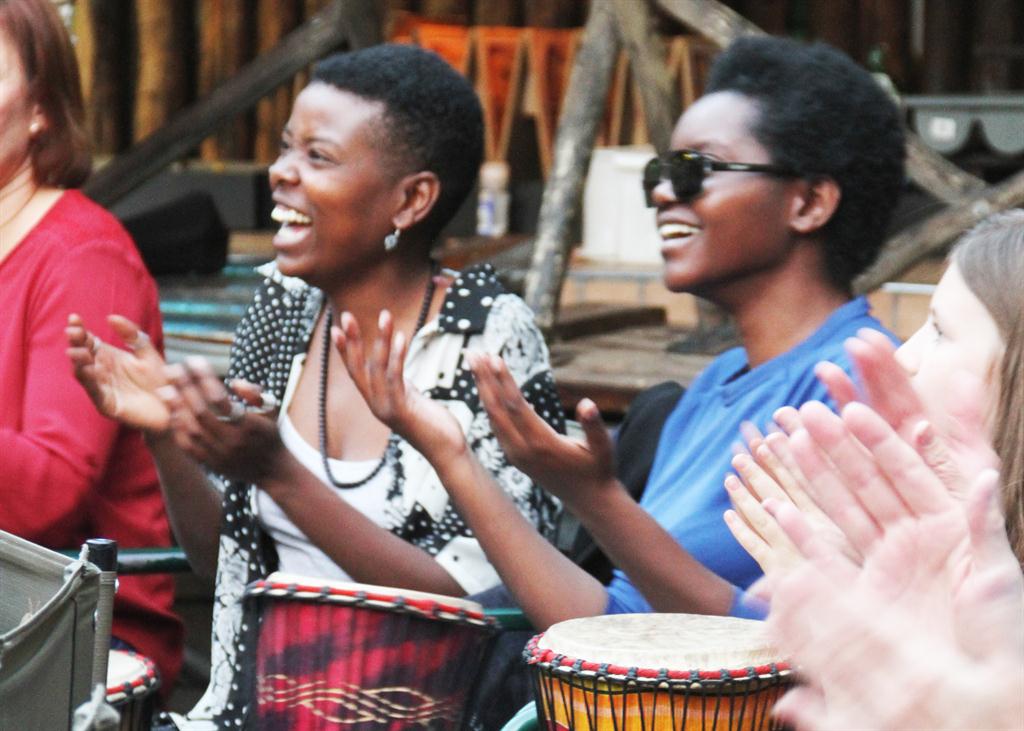
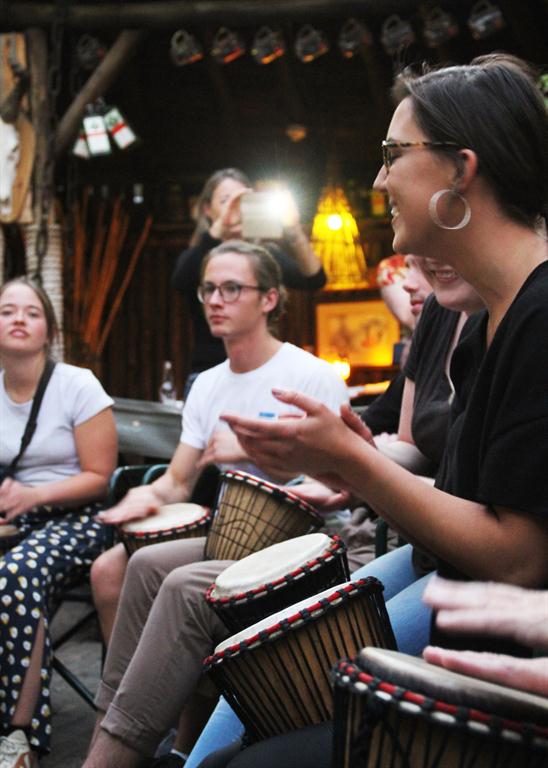
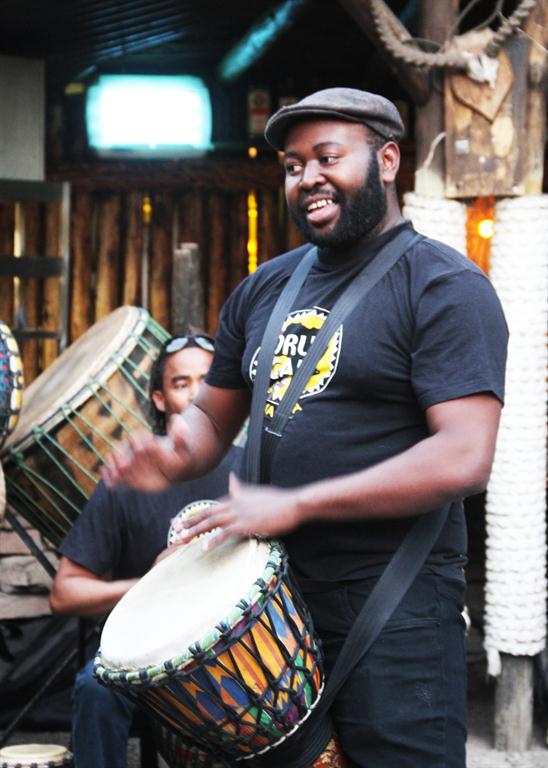
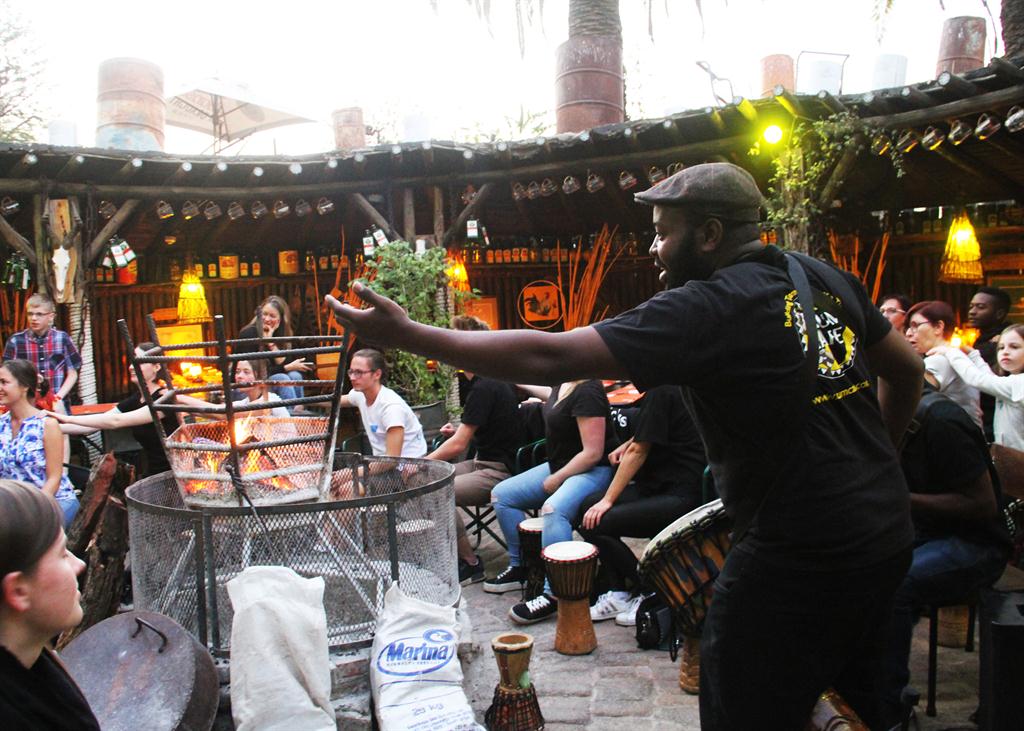
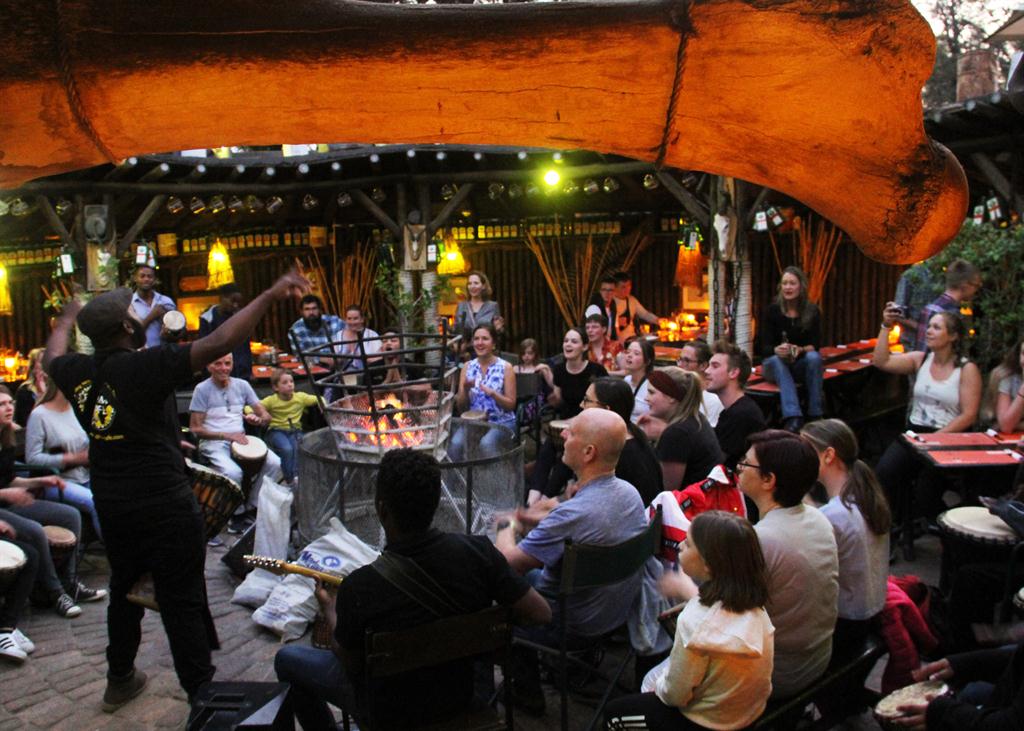
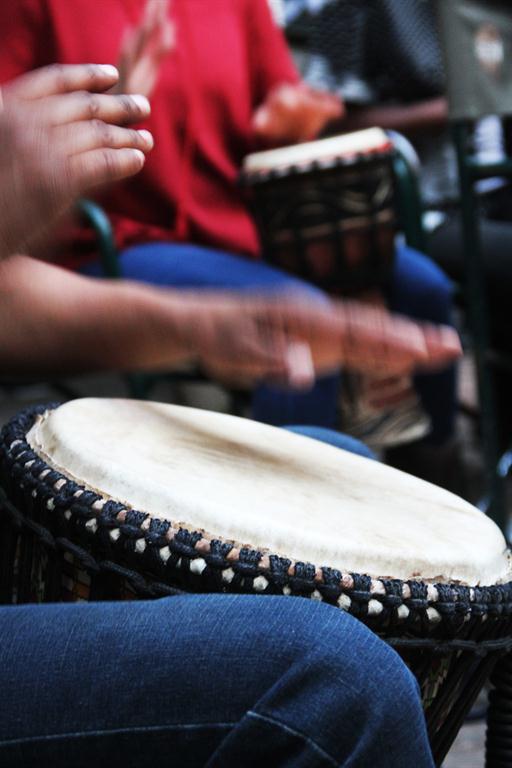


Comments
Namibian Sun
No comments have been left on this article